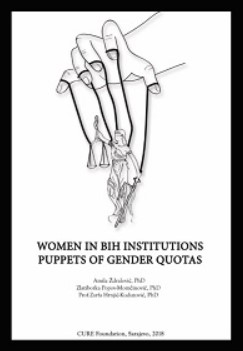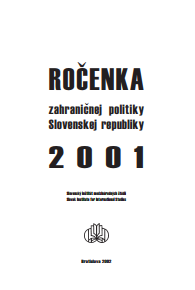
We kindly inform you that, as long as the subject affiliation of our 300.000+ articles is in progress, you might get unsufficient or no results on your third level or second level search. In this case, please broaden your search criteria.

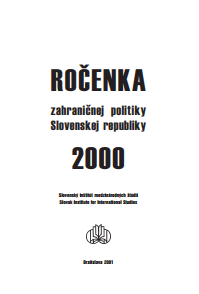

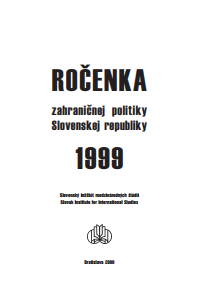

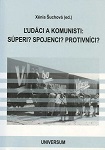
Vznik Československa r. 1918 zastihol Slovensko uprostred procesu premeny z tradičnej na modernú občiansku spoločnosť. Narážali v ňom na seba dve protichodné tendencie: tiahnutie ku konzervativizmu sa odrážalo vo vysokej miere religiozity; modernizačná tendencia sa - okrem iných relevantných znakov -prejavila v prudkej, až agresívnej dynamike politického a verejného života. Obe poznačili aj „zžívanie sa“ domáceho obyvateľstva s vyspelejším a „modernejším“ českým národným elementom v novom spoločnom štáte. V podmienkach hospodárskeho liberalizmu a parlamentnej demokracie, vyznačujúcej sa na jednej strane rozsiahlymi ústavnými právami a slobodami, na druhej strane recipovanými zákonmi rakúsko-uhorskej monarchie, tento prechod nemohol byť priamočiary ani bezbolestný.
More...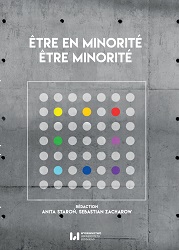
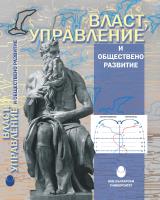
Opening words of the Director of the New Bulgarian University Department of Administration and Management, Assoc. Prof. Kristiyan Hadzhiev to the Authority, governance and societal development; Global, regional and national perspectives International Scientific-applied Conference.
More...
Address from Mrs. Elena Kircheva, Secretary General of Vienna Economic Forum to the organizers and attendees of the International Scientific-applied Conference"Authority, Governance and Societal Development" and announcing the awarding of honorary sign to New Bulgarian University.
More...
Vanya Kastreva, Director of RDE - Sofia-grad greets organizers and attendees at the International Scientific-applied Conference "Authority, Governance and Societal Development" and shares her expectations that this good initiative would continue.
More...

The relationship between economic, social, environmental, geopolitical and technological risks as well as the studied relationships is discussed: exogenous factors – systemic risks, economic inequalities – macroeconomic policies, public interests – economic priorities and analyzed opportunities (regional and national – Latin America, EU, Bulgaria) to correct any inconsistencies in this respect. A model for predicting bankruptcy risk for Bulgarian companies is proposed based on a linear multidimensional discriminatory analysis as well as studies of cluster initiatives with a comparative analysis of the structure and development of clusters in Bulgaria and EU-wide. The challenges and prospects for „green“ management of small and medium-sized businesses – comparatively in Bulgaria, France, Italy, Lithuania and Slovenia – and the impact of policies at different structural levels – local, territorial, national, integration communities – and the role of advisory services, the application of concrete approaches to the competitiveness of firms and international trade chains that are capable of offsetting risks.
More...
Different models of strategic engagements between state authorities, tourism management organizations and tourism businesses in leading tourist destinations are discussed. Different approaches are sought through which tourism can contribute not only to the economic and cultural development of the destinations, but also to the social development. The strategic guidelines in human capital management are highlighted, requiring multi-faceted tools and adequate motivating impacts on creative organizational behavior of those in the hospitality industry. A new conceptual model for tourism zoning in Bulgaria is proposed to act as a tool for the marketing of destinations but also for the creation of regional tourist products. Marketing and business development are becoming an important part of the top management of tourism that manages not only the organization of leisure time, ways to restore physical and mental performance, but also offers city management strategies as attractive tourist destinations – one of the major missions and policies for managing modern cities.
More...
Discussing the main issues raised at the plenary session, but also defining the parameters of the vision, policies and goals of Industry 4.0 – by adapting the modern management models according to the state of the business environment in the European Union. The prerequisites are analyzed: competences in mathematics, trends and challenges in higher education and the competitiveness of the ICT industry; ecosystem management as an innovative approach and building intelligent cooperation for the functioning of the modern enterprise – defined by the flow architecture (information, material, etc.) between the different centers
More...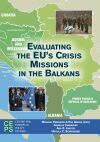



Rukopis sistemski izlaže i kritički utemeljuje činjenice koje se odnose na propuste u interpretaciji nastavnog sadržaja u udžbenicima osnovne i srednje škole, propuste u obrazovnoj politici koja potiče segregaciju kao i propuste u izradi nastavnih planova i programa. Pozitivna kritika svakako ima za cilj suzbijanje stereotipa u obrazovnom sistemu te skretanja pozornosti kako autorima/cama i recenzetima/nticama tako i nadležnim vlastima da se ozbljno pozabave problemom obrazovne politike, definisanja pravila izrade udžbenika i načina njihovog odobravanja.
More...
